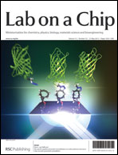
LAB ON A CHIP
metrics 2024
Pioneering Advances in Lab-on-a-Chip Technology
Introduction
LAB ON A CHIP, published by the Royal Society of Chemistry, is a prestigious journal that occupies a pivotal position within the realms of biochemistry, bioengineering, and biomedical engineering. With its ISSN 1473-0197 and E-ISSN 1473-0189, this UK-based journal has been at the forefront of microfluidics and lab-on-a-chip technology since its inception in 2001, consistently contributing to advancements in these dynamic fields. The journal enjoys an impressive reputation, boasting a Q1 ranking in several categories, including Biochemistry and Bioengineering, and maintaining a significant presence reflected through its Scopus rankings. The journal's commitment to innovation and cross-disciplinary research is evident as it bridges chemistry with nanoscale science and technology, making it an essential resource for researchers, professionals, and students seeking to stay abreast of groundbreaking developments. Although it follows a traditional subscription model, its high visibility and accessibility underscore the importance of sharing cutting-edge research findings globally. Recognized as a vital platform for fostering scientific discourse, LAB ON A CHIP continues to play a crucial role in shaping the future of laboratory technology and applications.
Metrics 2024
 1.25
1.25 6.10
6.10 6.30
6.30 246
246Metrics History
Rank 2024
Scopus
IF (Web Of Science)
JCI (Web Of Science)
Quartile History
Similar Journals
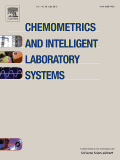
CHEMOMETRICS AND INTELLIGENT LABORATORY SYSTEMS
Pioneering the fusion of chemistry and computational intelligence.Chemometrics and Intelligent Laboratory Systems is a distinguished journal published by Elsevier, disseminating pivotal research and innovations at the intersection of analytical chemistry, computer science applications, and chemical engineering. With an impressive impact factor reflecting its scholarly influence, the journal aims to advance the development and implementation of chemometric methods, artificial intelligence, and intelligent systems in laboratory settings. Since its inception in 1986, the journal has consistently featured high-quality articles, currently positioned in the Q2 quartile across multiple relevant fields including Analytical Chemistry and Process Chemistry. Based in the Netherlands, the journal invites rigorous contributions that enhance the understanding and application of sophisticated data analysis techniques in scientific research. Although it currently does not offer open access options, the journal remains a vital resource for researchers and professionals dedicated to exploration and advancements in laboratory methodologies and analytical technologies.

Micro and Nano Systems Letters
Unleashing Potential in Micro and Nano TechnologiesMicro and Nano Systems Letters, published by SPRINGERNATURE, is a prominent peer-reviewed journal dedicated to advancing the field of micro and nanosystems, with a special focus on biomaterials and biomedical engineering. Since its inception in 2013, this Open Access journal has provided a vital platform for researchers and practitioners to disseminate innovative findings and share insights that contribute to the growing body of knowledge in these rapidly evolving disciplines. With a remarkable impact reflected in its Q1 quartile rankings in both biomaterials and biomedical engineering, and impressive Scopus ranks placing it within the top tier of its fields, Micro and Nano Systems Letters plays a critical role in fostering collaboration and knowledge exchange among scientists and engineers worldwide. The journal is accessible globally, ensuring that research is widely disseminated and impacting a diverse audience to drive progress in technology and healthcare solutions.

BioChip Journal
Pioneering Research at the Intersection of Bioengineering and TechnologyBioChip Journal, published by the Korean Biochip Society (KBCS), is a renowned academic platform dedicated to advancing the fields of bioengineering, biomedical engineering, biotechnology, and electrical and electronic engineering. With its ISSN 1976-0280 and E-ISSN 2092-7843, this esteemed journal has established itself as a valuable resource for researchers, professionals, and students alike, providing them with cutting-edge research and insights since its inception in 2008. The journal has earned a commendable standing in the academic community, achieving Q2 ranking across key categories, thereby placing it amongst the top-tier publications. With its impressive Scopus rankings, including a top 10% position in Electrical and Electronic Engineering and a strong showing in both Biomedical Engineering and Biotechnology, BioChip Journal plays a vital role in disseminating innovative biochip technologies and applications. The journal continues to invite groundbreaking studies and reviews that promote the interdisciplinary collaboration essential for the future of biochip research, ultimately contributing to advancements in healthcare, diagnostics, and therapeutics.
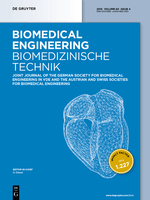
Biomedical Engineering-Biomedizinische Technik
Innovating Today for a Healthier Future in MedicineBiomedical Engineering-Biomedizinische Technik, published by WALTER DE GRUYTER GMBH, serves as a pivotal platform for advancing knowledge in the field of biomedical engineering and medicine since its inception in 1956. With an ISSN of 0013-5585 and an E-ISSN of 1862-278X, this peer-reviewed journal offers accessible insights into innovative research and technological advancements that are reshaping healthcare practices and biomedical applications. Although rated in the Q3 category for both Biomedical Engineering and Miscellaneous Medicine in 2023, the journal's impact factor and growing reputation demonstrate its vital role in fostering academic dialogue and collaboration. The journal is based in Germany, while its scope encompasses a diverse range of topics, thus bridging the gap between engineering and medical disciplines. Researchers, professionals, and students alike are encouraged to engage with the content that not only highlights contemporary challenges but also presents groundbreaking solutions in biomedical technology.

Bioengineering & Translational Medicine
Connecting Science and Medicine for Impactful OutcomesBioengineering & Translational Medicine, published by WILEY, positions itself at the forefront of innovation in the fields of biomedical engineering, biotechnology, and pharmaceutical science. With an impressive impact factor reflected through its top-tier Q1 rankings in multiple categories, the journal serves as a critical platform for disseminating cutting-edge research and stimulating discourse among professionals and scholars since its establishment as an open-access journal in 2016. Key to its mission is facilitating the translation of bioengineering research into tangible medical applications, thereby enhancing healthcare outcomes. With its comprehensive scope, it attracts a diverse readership, including researchers, industry leaders, and students eager to engage with the latest developments in translational medicine. The journal operates under robust access options, ensuring that research is freely available for maximum reach and impact, fostering collaboration and innovation across disciplines worldwide.
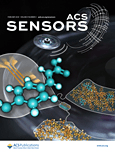
ACS Sensors
Unveiling innovative solutions in sensing systems.ACS Sensors, published by the American Chemical Society, is a premier journal focusing on the rapidly evolving field of sensors and sensing technologies. With an ISSN of 2379-3694, it has established itself as a key resource for researchers and professionals in bioengineering, fluid flow, instrumentation, and process chemistry. The journal holds a remarkable Q1 ranking across multiple categories, indicating its influential position within the academic community, with Scopus rankings placing it in the top echelons of its fields. Since its inception in 2016, ACS Sensors has provided high-quality, peer-reviewed research that drives innovation and application in sensor technology. The journal encourages submissions of original research articles, reviews, and technical notes that advance the understanding of sensing systems, showcasing novel methodologies and applications. While currently operating under a subscription model, the journal is committed to enhancing accessibility to cutting-edge discoveries. By fostering a collaborative environment for scientists and engineers, ACS Sensors is vital in bridging the gap between theory and practical applications, making it an essential read for those engaged in sensor development and application across various disciplines.
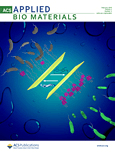
ACS Applied Bio Materials
Exploring Breakthroughs at the Intersection of Biology and MaterialsACS Applied Bio Materials is a leading academic journal published by the American Chemical Society, focusing on the innovative intersection of bioengineering and materials science. Since its inception in 2018, the journal has established itself as a pivotal platform for disseminating impactful research within the fields of Biochemistry, Biomaterials, Biomedical Engineering, and Chemistry, often ranked in the top tiers of these categories. With an impressive impact factor, it holds a Q2 ranking in both Biochemistry and Biomaterials, and a prestigious Q1 ranking in Biomedical Engineering and miscellaneous Chemistry, underscoring its significance in advancing knowledge and practices across these disciplines. The journal’s editorial commitment to high-quality, peer-reviewed research ensures relevance and rigor, appealing to a diverse audience of researchers, professionals, and students keen to explore breakthroughs in bio-related materials technology. The access options enhance its visibility and reach, allowing for a broader dissemination of studies that drive innovation and collaboration in biotechnology and material sciences. Located in the heart of Washington, DC, ACS Applied Bio Materials serves as a crucial resource for advancing the future of healthcare, engineering, and materials research.

ASAIO JOURNAL
Exploring the Frontiers of Medical Solutions and TechnologiesThe ASAIO Journal, published by Lippincott Williams & Wilkins, stands as a premier platform in the realm of bioengineering and biomedical innovation, with a rich history spanning from 1978 to present. Renowned for its rigorous peer-reviewed content, the journal holds an impressive impact factor categorized as Q1 in Biomedical Engineering and Q1 in Biophysics for 2023, signaling its critical role in advancing knowledge and research in these pivotal fields. The journal's domain extends into diverse topics within biophysics, biomaterials, and miscellaneous areas of medicine, making it a vital resource for researchers, professionals, and students alike. Through its commitment to showcasing pioneering research and fostering scientific dialogue, the ASAIO Journal reinforces its position as a key contributor to the ongoing development of innovative medical solutions. Researchers and practitioners can access a wealth of knowledge that is essential for staying at the forefront of technology and methodologies that shape the future of healthcare.
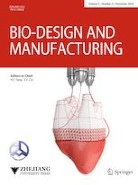
Bio-Design and Manufacturing
Exploring Cutting-Edge Research in Bio-DesignBio-Design and Manufacturing, published by SPRINGER HEIDELBERG, is a pioneering journal that stands at the forefront of innovation in the fields of Biomedical Engineering, Biotechnology, Industrial and Manufacturing Engineering, and Materials Science. With its ISSN 2096-5524 and E-ISSN 2522-8552, this journal has established itself as a leading platform for disseminating cutting-edge research and advancements that merge biological principles with manufacturing processes, emphasizing sustainable and efficient practices. It has garnered recognition in the 2023 category quartiles, boasting a Q1 rank in all its relevant fields, which underscores its significance and impact—evident from its prime Scopus rankings that place it within the top percentiles of numerous engineering and materials science disciplines. Researchers, professionals, and students alike benefit from the wealth of knowledge presented in this journal, making it an essential resource for those seeking to enhance their understanding of bio-design applications and innovation in manufacturing processes.

Nature Biomedical Engineering
Transforming Healthcare Through Engineering ExcellenceNature Biomedical Engineering is a premier journal published by NATURE PORTFOLIO, focusing on innovative research at the intersection of engineering and biomedical sciences. With an ISSN of 2157-846X, this journal aims to disseminate groundbreaking studies that advance the field of bioengineering, biotechnology, and medical applications. Since its inception in 2017, it has rapidly earned a reputation for excellence, consistently achieving a Q1 ranking in various categories including Bioengineering and Biomedical Engineering, and receiving acclaim in prestigious Scopus rankings, boasting top positions in the fields of Computer Science Applications and Medicine. The journal operates under a rigorous peer-review process, ensuring that all published articles contribute substantially to the existing body of knowledge. Furthermore, it facilitates a broad accessibility model for researchers and practitioners, bolstering collaboration and innovation within the global scientific community. Nature Biomedical Engineering is not just a publication; it serves as a vital platform for thought leadership in the transformative field of biomedical engineering.